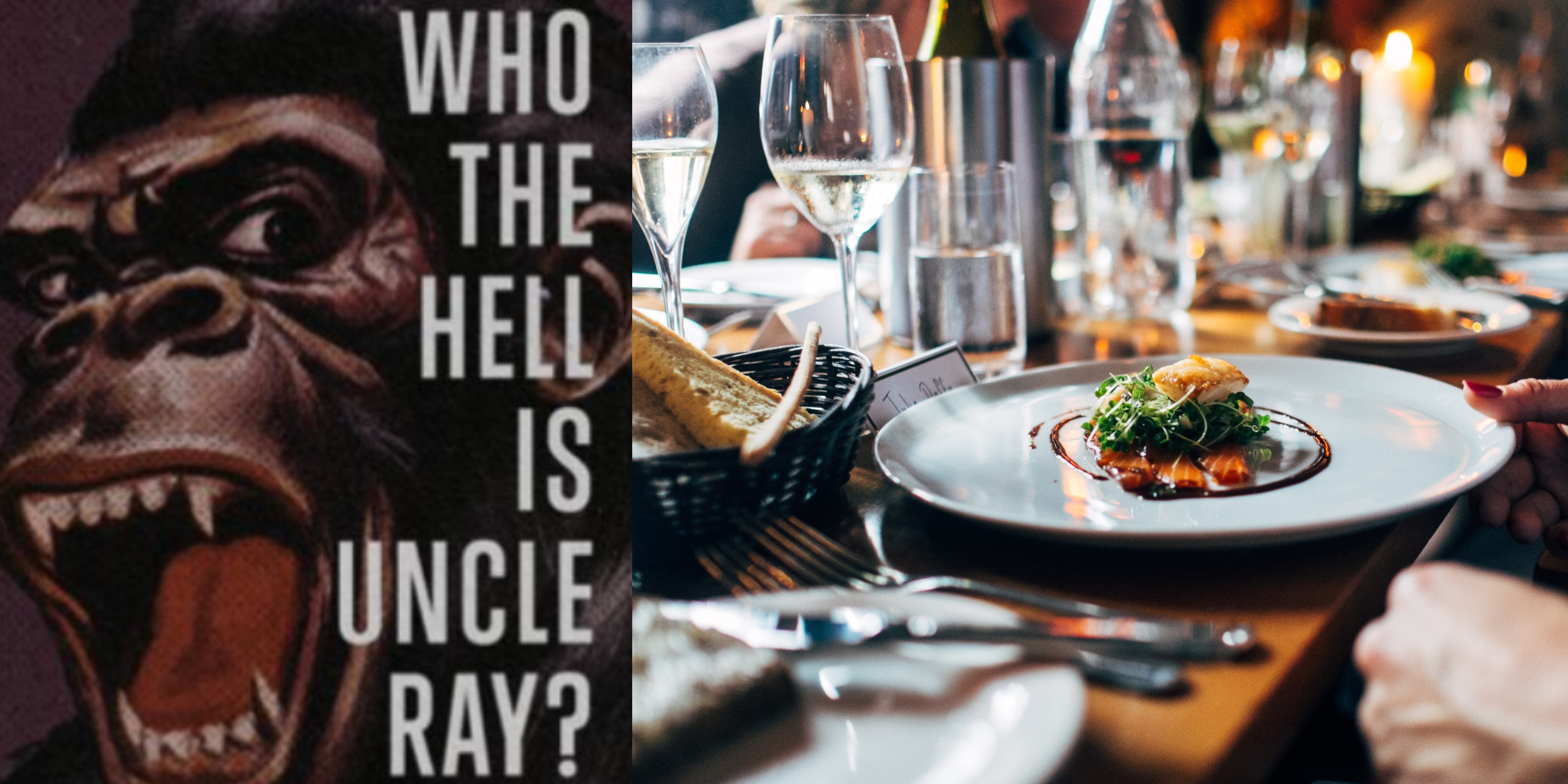These Guys Used an Ape to Illustrate a Southern Food Restaurant

Credit to Author: Manisha Krishnan| Date: Tue, 14 Jan 2020 20:10:06 +0000
Women of colour like me often point out that there aren’t enough of us in positions of power in the workplace.
A lot of dudes (and some women) pretend to care about that while having no intention of doing anything about it. Because what’s in it for them? The status quo is working just fine.
Well, one benefit would be saving themselves from idiotic and outright embarrassing bro marketing campaigns, like the two I stumbled on this week.
Everyone knows the restaurant industry is bro-y as hell—most chefs are white dudes.
That manifests itself in certain ways: black leather couches, antler chandeliers, faux-vintage signage, 50-pound burgers named after cardiovascular diseases. Enter Toronto’s latest addition to that godforsaken genre: Uncle Ray’s Food & Liquor.
CBC food writer Suresh Doss tweeted the press release for Uncle Ray’s, noting that it left him “speechless.”
If you could cram every stereotype about toxic masculinity and racial microaggressions into one marketing campaign, this would be it.
The restaurant, which has a location in Hamilton and is opening another one in downtown Toronto soon, bills itself as a place that serves “food with soul” and “liquor with love.”
It’s essentially a southern food joint, but “the vibe is premium and edgy” for a “discerning…crowd that seeks to level up their experience.” (Read: we will overcharge tourists.)
And when they say edgy, they mean it. “We’re slingin’ really f*cking good food here,” says the restaurant’s website, while the space will include a “side hustle for late nights.” (I assume this is a dancey area.)
Even the food descriptions are cringe. The red snapper comes whole and fried so you can “look your food straight into its eye” while the southern platter “gangs up” roasted chicken, fried chicken, sausage, beef rib, and sides. We get it, you like animal flesh.
But the worst part of Uncle Ray’s is the fact that they used a photo of a gorilla with the slogan “Who the hell is Uncle Ray?”
So we have an establishment run by a bunch of guys named Yannick, Michael, Adam, and Dan, who are ripping off Black southern culture and using a racist trope to boot.
VICE reached out to Adam Teolis, operating partner at Open Concept Hospitality, which is behind Uncle Ray’s, to ask about the marketing campaign.
“We are aware of the activity on social media around Uncle Ray's but we do not have anything to add except that is was (sic) an oversight on our part and certainly no intentional (sic).”
It may have been an oversight, but it’s pretty easy to see why it happened and why it’ll probably happen again.
Now let’s turn our attention to legal cannabis, an industry that has brought together guys from all (mostly affluent) walks of life. Many, myself included, have remarked on the inequity within the space, especially when over-policed Black and Indigenous peoples, women, medical patients, and those who built the illicit market—taking major risks to do so—have largely been excluded.
Well B.C.-based legal weed company GTEC Holdings is sort of taking on that issue. Not by undertaking any social justice movement, but by capitalizing on the term “black market.”
The company debuted its recreational weed brand Blk Mkt in December, and was on hand at the Lift & Co. Cannabis Expo in Vancouver last week to show it off. Its signage at the expo included the slogan: “Once you go Blk…” You know, like a play on that fetishizing slogan “once you go Black, you never go back.”
The marketing ploy didn’t go over too well on Twitter, with many remarking that it’s pretty dang tone deaf to appropriate the term “black market” in order to make money, while people who actually worked in the black market or fought prohibition have been criminalized.
GTEC Holdings founder Norton Singhavon said he can see why the “Once you go Blk” slogan was a misfire, though he thinks it’s being taken out of context.
However, he said the brand is meant to “pay homage to the real OGS out there, the guys who risked it all.”
According to Singhavon, the brand is tracking well amongst its key demographic—weed connoisseurs who want craft cannabis and high THC strains. He also said the bulk of his senior operations team is made up of people who came from the legacy market.
“The purpose of this brand was to be edgy and controversial,” Singhavon said.
Looks like they succeeded, for whatever that’s worth.